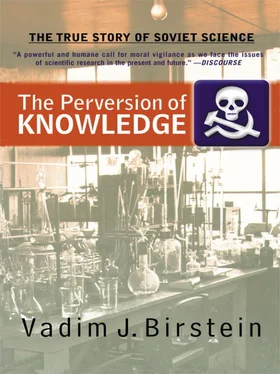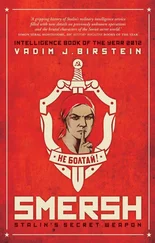Some other biologists were also famous. The work of Academician Vladimir Zalensky (1847–1918; known as Salensky in German publications) was the first to describe the early embryogenesis of invertebrates and low vertebrates, including sturgeons. 13The botanist and academician Vladimir Palladin (1859–1922), a devoted supporter of Darwinian evolutionary theory, was one of the first scientists to study plant respiration. In contrast, two other botanists and academicians, Andrei Famintsyn (1835–1918) and Ivan Borodin (1847–1930), were known for their opposition to Darwin’s theory. 14
Academicians—chemists, physicists, and mathematicians—also achieved international recognition. Aleksei Kurnakov (1860–1941) was a distinguished physical chemist who studied alloys. Pavel Valden (1863–1957; or Paul Walden) was an organic chemist who emigrated after the revolution to Germany and from 1919 headed the Chemical Institute of Rostock University. Vladimir Ipatieff (1857–1952) was a unique specialist on catalytic reactions at high temperatures and studied the nature of the separation of metals under hydrogenation pressure. Later, he played an important role in the creation of the Soviet chemical warfare industry, as will be discussed presently. However, in 1930, he refused to return to the Soviet Union and eventually moved to the United States. 15Aleksei Krylov (1863–1945) was called “an encyclopedist of naval arts and sciences: he was a mathematician, a shipbuilding engineer and theoretician, an artillery expert, and a historian of science.” 16Academician Aleksei Lyapunov (1857–1918) was known for his works on probability theory. 17Academician Pyotr Lazarev (1878–1942), a physicist and biophysicist (he worked mainly in molecular physics and photochemistry) developed a theory of oceanic currents and the change in the earth’s climate over geological periods. 18
But this does not mean that the academy always elected the most qualified Russian scientists. In 1880, the most distinguished chemist of the time, the author of the Periodic Law of atomic weights, Dmitrii Mendeleev (1834–1907), was not elected to the academy. 19In 1893, the academy voted against the full membership of another scientist, mathematical crystallographer Yevgenii Fedorov. His theoretical models of the structure of crystals were confirmed later by X-ray studies. In 1901, Fedorov was elected as an “adjunct” member, but in 1905 he resigned from the academy because, as he stated at that time, the academy was a hindrance to modern organization of scientific work. 20Furthermore, before the February Revolution, the academy did not accept scientists of Jewish origin.
After the outbreak of World War I, the role of the academy as coordinator of scientific research became extremely important. In spring 1915, the General Assembly of the Academy unanimously decided to create the Commission for the Study of Natural-Productive Forces (KEPS), to be headed by Academician Vladimir Vernadsky (1863–1934), a mineralogist, crystallographer and geochemist, one of the most independent-minded Russian, and later Soviet, academicians. 21The special War Chemical Committee chaired by Academician Ipatieff was another example. The committee had five branches: explosives, poison gases, incendiaries and flame throwers, gas masks, and acids. Academicians Aleksei Kurnakov and Pavel Valden took part in its work as permanent members. 22
According to the academy statutes adopted in 1836, which stayed in effect until 1917, the president of the academy was selected from the elite of Russian society and then appointed by the tsar. 23The last appointed president, Great Prince Konstantin Romanov (a member of Tsar Nicholas II’s family), died on June 11, 1915. 24After the February Revolution of 1917, the Provisional Government approved changes in the governing statutes proposed by the academicians regarding the election of their president. On May 15, 1917, for the first time in the history of the Imperial Academy of Sciences, 25the academicians voted for their president. Aleksandr Karpinsky, a prominent geologist, was elected unanimously (twenty-seven academicians attended this meeting). The botanist Ivan Borodin was appointed acting vice president. 26On July 11, 1917, at Meeting No. 39 of the Provisional Government, the Imperial Academy was renamed the Russian Academy.
During the final years of the tsarist regime, the academy did not support the conservative politics of the government, seeing all too clearly the incompetence of the government, especially in the areas of science, technology, and the economy. P. Vannovsky, minister of people’s education, was in charge of supervising the day-to-day affairs of the academy, with his decisions being approved by the tsar. When politically sensitive matters were involved, Nicholas II simply ordered Vannovsky to ignore the academicians’ opinion. The most scandalous situation occurred after the election of the famous writer and opponent to the regime, Maxim Gorky (his real name was Aleksei Peshkov) as honorary academician. On February 25, 1902, Nicholas II ordered that this “mistake” be corrected and on March 11, 1902, the official magazine Pravitel’stvennyi Vestnik [Governmental Bulletin] published a note that the academy had canceled the election of Gorky. The minister did not even bother to inform the academy of this publication. 27Only on March 29, 1917, after the February Revolution, did the official Vestnik Vremennogo Pravitelstva [Bulletin of the Provisional Government] announce: “The Literature Branch [of the academy] has confirmed the writer A. M. Peshkov’s (M. Gorky) Honorary Academician membership.” 28The article was signed by the permanent secretary of the Academy of Sciences, Ordinary Academician Sergei Oldenburg. Later, the Orientalist Oldenburg (1863–1934) played one of the key roles during the Sovietization of the academy, trying to save the remnants of the academy’s independence. 29
The academy supported the Provisional Government completely, but, unfortunately, it was weak and indecisive. On July 21, the government was reshuffled, and Aleksandr Kerensky, minister of war and navy, became its chairman. Permanent Secretary Oldenburg was appointed minister of people’s education, and the geochemist academician Vernadsky became deputy minister. He continued to serve as deputy minister after Oldenburg’s resignation on August 31. 30
Most academicians regarded the Bolshevik takeover on November 7, 1917, as a national catastrophe. 31Discussions about the political situation in the country were held at two emergency meetings, on November 18 and 21, 1917. At the second meeting, a strong anti-Bolshevik resolution was adopted. Only the chairman of the chemical committee, Lieutenant General Vladimir Ipatieff, was against the resolution.
But Academician Vernadsky went further, participating in an attempt to continue the work of the Provisional Government underground, after most of its members had been arrested. 32On November 19, the Bolshevik newspaper Pravda [The Truth] published an order of the Military-Revolutionary Committee (VRK) 33to arrest members of the underground government. Vernadsky was on the list. The VRK was established by the Bolshevik-dominated Petrograd (named Leningrad after 1924) Soviet on October 12, 1917, and was the engine of the Bolshevik takeover. From October 29, 1917, on, it affiliated itself with the All-Russian Central Executive Committee (VTsIK), the beginnings of the Soviet government. Usually the VRK is considered the predecessor of the first Soviet secret service, the All-Russian Extraordinary Commission, or VCheKa. Three days later, the academy voted to send Vernadsky “to the Southern part of the country because of his bad health…” The same day, he was able to leave Petrograd for the Ukraine and his life was saved. 34In the Ukraine, Vernadsky managed to escape the terrors of the Bolshevik/White Russian Civil War and in March 1921, returned to Moscow. He was detained soon after, in July 1921. 35
Читать дальше











